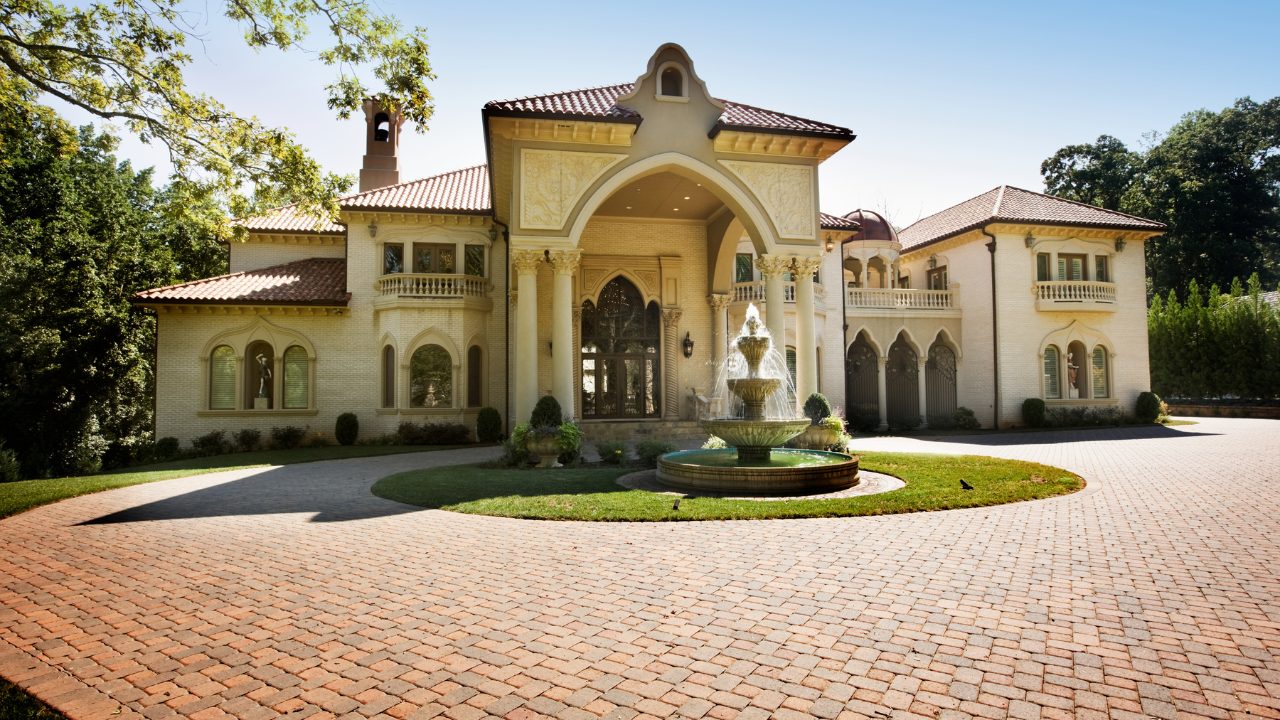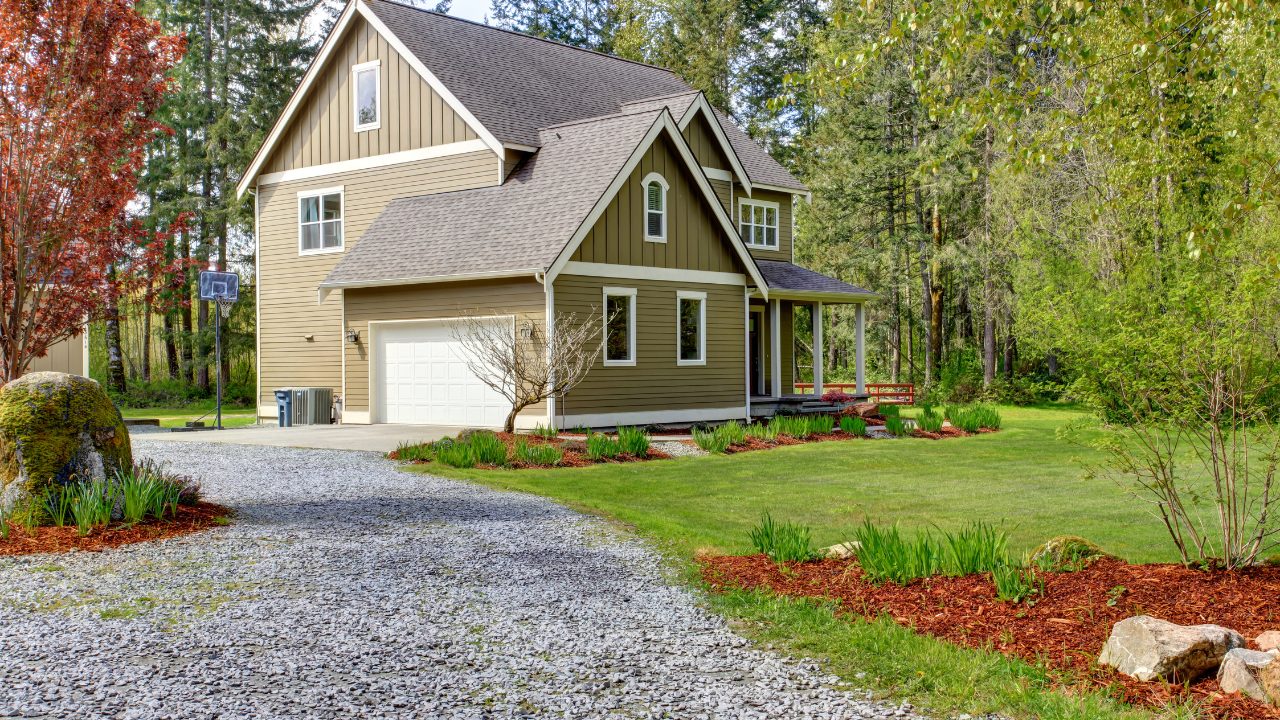Driveways are an essential part of any home. They are not only functional but can also add curb appeal to your property. When choosing a new driveway, there are many factors to consider such as material, cost, durability, and maintenance. Keep reading to learn about the different types of driveway surfaces and which one might be the best fit for your home.
Asphalt Driveways
Asphalt is by far the most common type of driveway surface. It is made from a mix of aggregate (crushed stone, gravel, and sand) and asphalt binder (a petroleum product). Asphalt driveways are generally less expensive than concrete driveways and can be installed relatively quickly. They are also easy to repair but they do require regular maintenance such as seal coating every 2-3 years to extend their lifespan.
Installation – The installation process for an asphalt driveway is fairly straightforward. First, the area where the driveway will be located is excavated and graded. Next, a layer of gravel is spread over the excavated area and compacted. Once the gravel base is prepared, hot asphalt is applied and then compacted. The final step is to apply a top coat of asphalt, which seals and protects the driveway surface.
Maintenance – Asphalt driveways require very little maintenance compared to other types of driveways. You should sweep them regularly to remove debris, and you can hose them down as needed to keep them clean. Every few years, you’ll need to have your driveway sealed with a fresh coat of sealant. This will help protect the surface from weather damage and prevent cracks and potholes from forming.
Repairs – If your asphalt driveway does develop cracks or potholes, they can easily be repaired with either cold patch material or hot asphalt. For large repairs, it’s best to hire a professional contractor who has experience working with asphalt driveways.

Concrete Driveways
Concrete driveways are made from a mix of cement, water, and aggregate. Unlike asphalt driveways, concrete driveways cannot be installed in cold weather and require a longer curing time. However, they are very durable and require little maintenance once they have been installed correctly. Concrete driveways will last 20-30 years with little to no cracking or fading. Here are just a few of the benefits of having a concrete driveway.
Aesthetics – Concrete driveways come in a wide variety of colors, textures, and patterns. You can even have stamped concrete that imitates other materials like stone or brick. So no matter what your home’s style is, there’s a concrete driveway option that will complement it perfectly.
Low Maintenance – Concrete is also low maintenance. Once it’s installed, all you need to do is occasional sweeping and cleaning. You don’t have to seal it or treat it with any chemicals like you would with some other driveway materials.
Durability – Concrete driveways are extremely durable and can last for decades with proper care. They can handle heavy vehicles without cracking or breaking. And if they do sustain any damage, they’re easy to repair.
Value – Investing in a concrete driveway can also increase your home’s resale value. Buyers are always looking for low-maintenance features that will save them time and money over the years, and a concrete driveway ticks both of those boxes.

Brick
Brick driveways are beautiful but they are also very expensive and difficult to install. Plus, bricks are susceptible to damage from freezing temperatures and salt used to melt ice on roads in winter. If you opt for a brick driveway, be prepared to spend a lot of money upfront and perform regular maintenance to keep it looking its best.
Brick driveways can add a touch of elegance to any home, but they’re not right for everyone. Here are some of the advantages and disadvantages of brick driveways to help you make an informed decision about whether or not it is right for your home.
Aesthetics – One of the biggest advantages of brick driveways is their aesthetic appeal. Brick is a timeless material that comes in a variety of colors and styles. Whether you’re looking for a classic red brick or something more modern, you’re sure to find an option that suits your taste.
Brick Driveways are Durable – Another advantage of brick driveways is their durability. When properly maintained, brick driveways can last for decades. They’re also resistant to cracking and chipping, which means they’ll continue to look great even with heavy use.
Brick Driveways are Expensive – One downside of brick driveways is their cost. Brick is one of the most expensive driveway materials available, so it’s important to factor this into your budget when making your decision.
Brick Driveways Require Regular Maintenance – In order to keep your brick driveway looking its best, you’ll need to perform regular maintenance tasks like sweeping and power washing. This can be time-consuming and may require special equipment or cleaning solutions, which can add to the overall cost of ownership.

Gravel Driveways
Gravel driveways are one of the least expensive options but require the most maintenance. Gravel must be replenished every few years as it gets pushed into the grass by car tires. It can also get tracked into your home if you have carpet or hardwood floors. However, gravel driveways provide good drainage and can be installed quickly. Here are some pros and cons of going with a gravel driveway that can help you make an informed decision about using gravel.
Gravel driveways are a great option for many people because they are:
Affordable – Gravel is one of the most budget-friendly options for driveway material. The initial cost is lower than many other options and it does not require regular maintenance or repairs like asphalt or concrete driveways might.
Easy to Install – Unlike some other driveway materials, gravel can be laid down relatively easily. This makes it a great option for those who do not want to spend a lot of time or money on installation.
Low Maintenance – Once your gravel driveway is installed, it does not require much in the way of maintenance. You will need to rake it occasionally to keep it looking its best, but there is no need to seal or repair it as you might with an asphalt or concrete driveway.
However, there are also some drawbacks to gravel driveways that you should consider before making your final decision.
Weeds – Because gravel is loose, weeds can easily grow up through it. This can be frustrating and unsightly. Luckily, there are products available that can help to prevent this problem.
Erosion – If your gravel driveway is not installed properly, it can be susceptible to erosion from rain and snowmelt. Be sure to consult with a professional when installing your driveway to avoid this problem.
Messy – Gravel can be messy, especially if you have children or pets who like to play outside. It can also track into your home if you are not careful. Some people find this messiness to be worth the tradeoff for the benefits of a gravel driveway; others do not mind sweeping up occasionally; still, others find it to be a deal breaker.

There are many things to consider when choosing a new driveway surface. Cost, durability, installation time, and maintenance should all be taken into account when making your decision. Asphalt driveways are a good choice for those who are looking for an affordable option that is easy to install but will require some regular maintenance. Concrete driveways are more expensive but last much longer with little required upkeep. If you’re looking for an elegant paving material that will add curb appeal to your home, brick may be the right choice for you. Gravel driveways are the least expensive but require the most work to maintain. No matter which option you choose, we hope you enjoy your new driveway!
